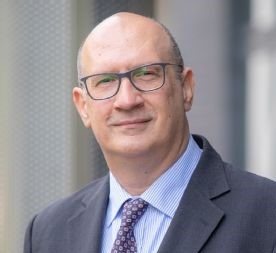WMG News - Latest news from WMG
How COVID19 could spark world-wide mobile consulting boom
Researchers, from WMG’s Institute of Digital Healthcare (IDH), believe that remote consulting practices should be adopted widely during the COVID-19 pandemic to help low and middle income countries to help combat the virus, and to provide quality healthcare to patients in the long-term.
By implementing remote consulting practices - such as by mobile phone or mobile app - to maintain services during the COVID-19 pandemic, health services in countries in Africa and South Asia could provide communities permanent access to healthcare that they previously struggled to access.
Researchers, at the University of Warwick and King’s College London, have developed and implemented a training course with St Francis University College in Tanzania designed to equip nurses, doctors and medical officers in leadership roles with the knowledge and skills to integrate remote consulting into practice in their local service. It is based on research recently published in the journal Digital Health that provides a framework for healthcare leaders to consider how to implement it in their own services. The training takes the form of a short course using blended learning through an app on a smartphone and facilitated through social media. These healthcare leaders cascade the learning to other health workers in their service.
 Professor Theodoros N. Arvanitis, Director of the Institute of Digital Healthcare, WMG at the University of Warwick and one of the co-authors, commented: “Digitally-enabled approaches to remote consultation provide the way forward in the new reality we are living. The COVID-19 pandemic has changed the way we will receive health care in the future, manage our health and wellbeing and go about our daily lives. Remote consultation and digital health solutions provide multiple benefits to individuals and society. Through such approaches, now and in the future, people’s health journeys are better understood and appropriate lifestyle choices can be better tailored and promoted to the individual.”
Professor Theodoros N. Arvanitis, Director of the Institute of Digital Healthcare, WMG at the University of Warwick and one of the co-authors, commented: “Digitally-enabled approaches to remote consultation provide the way forward in the new reality we are living. The COVID-19 pandemic has changed the way we will receive health care in the future, manage our health and wellbeing and go about our daily lives. Remote consultation and digital health solutions provide multiple benefits to individuals and society. Through such approaches, now and in the future, people’s health journeys are better understood and appropriate lifestyle choices can be better tailored and promoted to the individual.”
Using mobile technology to see patients is part of the World Health Organisation’s COVID-19 response strategy, but detail there is limited. The researchers have put together a policy brief written in response to the COVID-19 pandemic to raise awareness of remote consulting and encouraging healthcare leaders in low to middle income countries to undertake the training and disseminate the knowledge within their local health service.
Professor Frances Griffiths from Warwick Medical School, and lead author of the paper, said: “Moving healthcare workers in low to middle income countries to remote consulting is something that we think is really important to consider.
“In the context of COVID-19, the benefits of remote consulting are suddenly much greater. It protects the health worker and minimises physical contact with patients. It minimises the risk to patients. As a result, it also reduces the need for PPE.
“For communities with little healthcare, this is a better way of providing good quality healthcare for them. For people who live anywhere who have a long term condition, it is so much more convenient for them if we can do as much as possible remotely.
“I think it will embraced more widely and I think it should be. What COVID-19 has done is made people realise that they can do it differently. The experience of COVID-19 in the UK is ahead of Africa and South Asia, but if we can get remote consulting off the ground there because of the pandemic then the benefits will be seen afterwards. Particularly for long-term conditions and marginalised communities, although there can be benefits for acute illnesses as well.”
Read ‘Mobile consulting (mConsulting) and its potential for providing access to quality healthcare for populations living in low-resource settings of low- and middle-income countries’ published in Digital Health, here: 10.1177/2055207620919594
